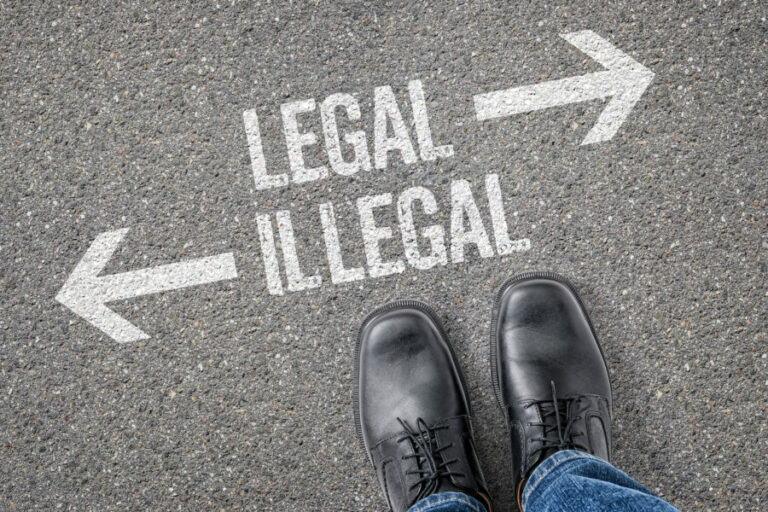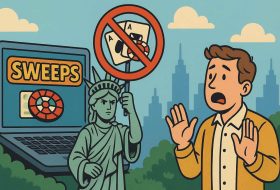
A new study paints a stark picture of Europe’s gambling market in 2024: unlicensed operators captured 71% of online casino and betting revenue, raking in €80.6 billion ($93.8 billion). Licensed companies made up just 29% of the market, according to data from Yield Sec and the European Casino Association.
The findings highlight what can happen when regulation falls short, and they serve as a warning for the United States as legal online casinos continue expanding state by state.
Illegal Sites Flood Europe’s Market
The report found that 92% of gambling-related content EU players saw online was tied to unlicensed sites. That visibility translated into participation, with 81 million Europeans (nearly one in five adults) engaging with illegal gambling in 2024.
Eastern Europe was hit hardest, where 82% of online gambling revenue went to the black market. Even Western Europe, home to mature casino markets like France and Germany, saw unlicensed sites capture nearly three-quarters of its online action.
For governments, the consequences are severe: an estimated €20 billion in lost tax revenue in a single year. Licensed operators, meanwhile, found themselves outmatched by illegal competitors who flooded social media with flashy bonuses, fake endorsements, and crypto options that regulators struggled to police.
Why It Matters for the U.S.
The American market is younger, smaller, and more fragmented, but the European experience shows how quickly illegal gambling can overtake regulated play if left unchecked. While U.S. states have generated billions in tax revenue from legal sportsbooks and online casinos, offshore operators continue to court American players with unlicensed apps and crypto casinos.
If the U.S. doesn’t expand regulated markets, players may gravitate toward the same unlicensed alternatives that now dominate Europe. That could mean missed tax revenue, lost jobs, and fewer consumer protections.
The U.S. Is Already Seeing Warning Signs
While Europe’s numbers are staggering, many of the same risk factors exist in the U.S. Offshore operators already attract American players despite being unlicensed. These sites use the same playbook described in the Yield Sec study: crypto deposits, fast onboarding without ID checks, and aggressive social media marketing. TikTok streams and Twitch channels featuring unlicensed play are easy to find, which normalizes offshore casinos for younger audiences.
The consequences mirror Europe’s experience. States with legal online casinos and sportsbooks collect hundreds of millions annually in taxes that fund schools, infrastructure, and responsible gaming programs. Yet those revenues are only a fraction of what is at stake. If unlicensed operators continue pulling in customers, U.S. governments risk losing out on billions while exposing players to platforms with no consumer protections, no recourse for disputes, and no commitment to responsible gambling.
Experts warn that failing to expand regulated gambling could hand the advantage to offshore markets. Just as Europe saw unlicensed operators dominate during big sporting events, the U.S. faces a similar test as events like the NFL season, March Madness, and the World Cup drive betting surges. Without enough legal options in place, demand spills over into the black market. The result is the same: tax losses, consumer risk, and a weakened regulated industry trying to compete with sites that play by no rules.
A Case for Expansion and Enforcement
The study emphasizes that cracking down on licensed operators alone doesn’t shrink the black market. Restrictions like bonus bans or strict deposit limits often push players toward offshore sites instead of keeping them safe.
For the U.S., that means two clear takeaways:
-
Expand legal online casino and sweepstakes options so players have safe, appealing alternatives.
-
Pair regulation with enforcement to disrupt illegal platforms that siphon money offshore.
Europe’s experience shows how overregulation can backfire. When strict limits eroded the appeal of licensed casinos, unlicensed operators filled the gap and quickly gained market share. For U.S. lawmakers, the takeaway is clear: regulated gambling succeeds only when it remains competitive, accessible, and backed by consistent enforcement.





